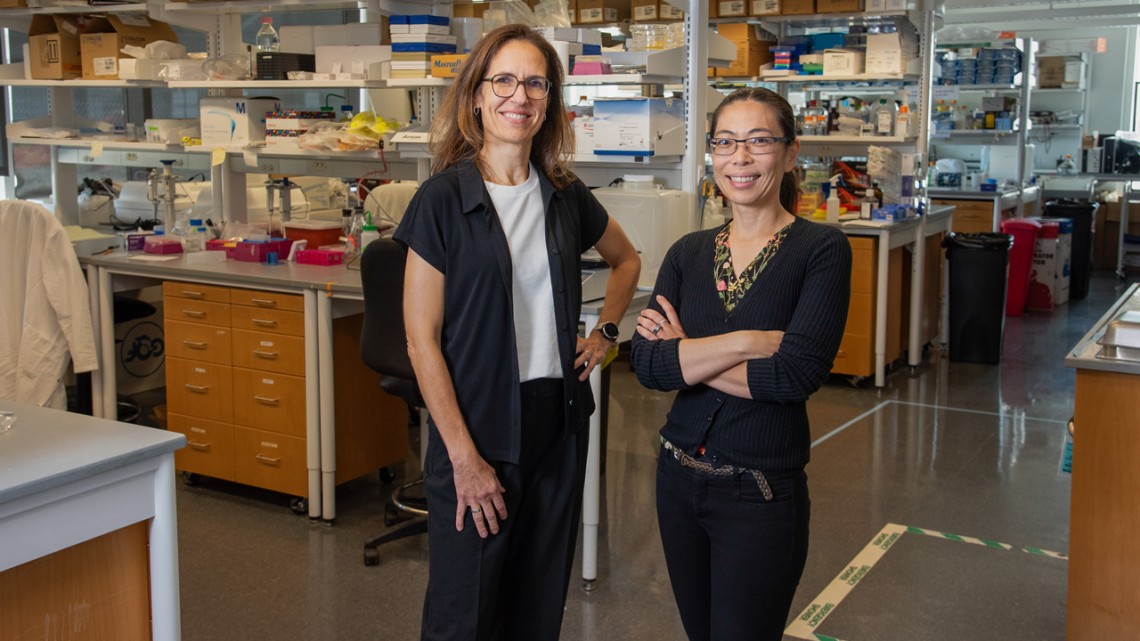
The Menopause Health Engineering Initiative, founded by Prof. Nozomi Nishimura, aims to understand the science of menopause and improve health for half the population! Check out the Cornell Chronical article here.
Postdoc Becka Irwin has just accepted a position as a Tenure-Track Assistant Professor in the Biomedical Engineering department at the University of Rochester, to begin July 2025. Congratulations Becka!
Check out Becka's UR faculty page here.
Through a new collaboration on VR technology with the Sarvestani lab, the Schaffer-Nishimura lab marks its 7th Neurotech project funded through the Mong Fellows program in the past 9 years, beginning with the inaugural fellowship in 2016. Congratulations to all!

The project, led by SN-lab alumnus Seth Lieberman, developed a surgical technique to attenuate the spread of epileptic seizures in the brain by making precise incisions with femtosecond laser pulses around epileptic foci. Check out the Cornell Chronical article here!
Postdoc Lianne Trigiani has just received a postdoctoral fellowship from the Alzheimer's Association! This is the 2nd major fellowship Lianne has been awarded for research in the Schaffer-Nishimura lab (after a CIHR fellowship in 2020), a testament to her consistently high quality work!

MouseGoggles, the cutesy VR headset developed by Matt Isaacson and Hongyu Chang in the Schaffer-Nishimura and Ellwood Labs, has made its way to the Late Show with Stephen Colbert.
Move over Nature - being a 15-second gag on late night TV is the real scientific achievement.
Cornell's new Broadening Experiences in Scientific Training (BEST) program, funded by the National Institutes of Health, was profiled in Science Careers. One track in Cornell's BEST program focuses on science policy and is led by Chris Schaffer.
A blog post on the AAAS Member Central website describes the goals of Chris Schaffer's new science policy course, BME 4440 Science Policy Bootcamp: From Concept to Conclusion. This course is being offered for the first time this Fall, with an enrollment of about 20 undergraduate and graduate student scientists.
There are too few scientists who understand how they might contribute to public policy. In an effort to address this problem, Prof. Chris Schaffer and Dr. Catharine Clark were recently awarded a faculty fellowship from the Cornell Center of Engaged Learning and Research. This award will be used to support a new and innovative course entitled “Science Policy Bootcamp", slated for implementation in the Biomedical Engineering Department in Fall 2013. In addition to academic and administrative support from the Center of Engaged Learning and Research, Faculty Fellows will receive a stipend of $2500.
To celebrate the month of March as National Women's History Month, the Scientista Foundation at Cornell University wanted to highlight some of our favorite women in STEM. Many times the achievements of women are overshadowed by those of their male counterparts or credited to the work of their male colleagues. We wanted to take the time to celebrate, a scientist a day, their achievements and their lasting contributions to not only the scientific world, but also the world we live in today. Today's post is our first faculty interview video featuring Scientista's current faculty advisor, Dr. Nozomi Nishimura.
Link to the Facebook Post